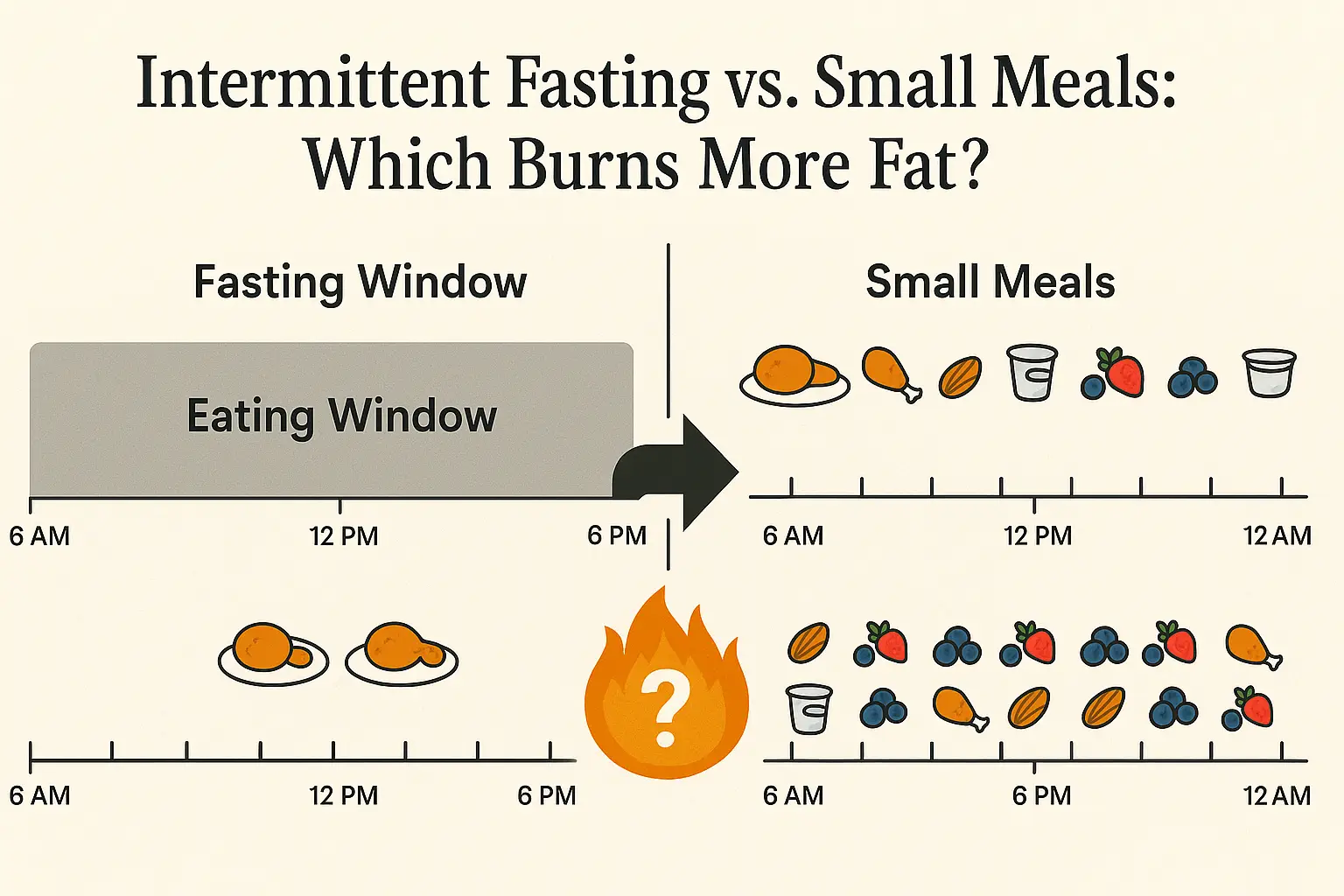
The debate between Intermittent Fasting (IF) and eating small, frequent meals is one of the most common in the fitness world. Proponents of grazing swear it stokes the metabolism, while IF advocates claim it unlocks hormonal fat-burning advantages. So, which strategy is truly superior for fat loss? The scientific answer might surprise you: **when calorie and protein intake are matched, neither has a significant metabolic advantage.** The winner is the one that you can adhere to best.
Let’s break down the theories:
* **Intermittent Fasting (e.g., 16:8):** This approach cycles between periods of eating and fasting. Its proposed benefits include improved insulin sensitivity, which can make it easier for your body to access stored fat for energy. The restricted eating window also naturally leads many people to consume fewer calories without conscious counting.
* **Small, Frequent Meals (e.g., 5-6 per day):** The traditional bodybuilding approach claims that eating every 2-3 hours “keeps the metabolism fired up” (the thermic effect of food) and prevents catabolism (muscle breakdown). It also helps manage hunger and provides a steady stream of energy.
However, long-term studies have consistently shown that the “stoking the metabolism” effect of frequent meals is negligible. The body is more concerned with the total amount of food consumed over 24 hours than the frequency. Furthermore, muscle loss is prevented by adequate total protein intake and resistance training, not by constant eating.
**The Verdict:** The “best” approach is entirely individual.
* **Choose Intermittent Fasting if:** You are not a breakfast person, you prefer larger, more satisfying meals, and you find it easy to skip meals. It simplifies your day and helps you control calories naturally.
* **Choose Small, Frequent Meals if:** You get hungry easily, you experience energy slumps, you have a very active job or training schedule, or you simply prefer the routine of eating throughout the day.
The key to fat loss is sustaining a calorie deficit. Choose the eating pattern that helps you do that most comfortably and consistently. Forcing yourself into a 16-hour fast when you’re constantly hungry, or forcing down a meal when you’re not hungry, is a recipe for failure. Adherence, not ideology, is king.
